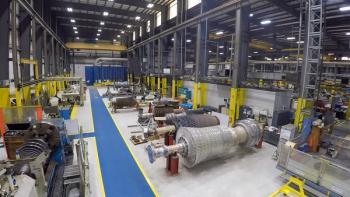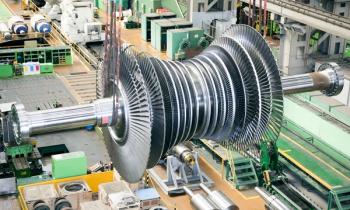
F-CLASS COMPRESSORS
The Electric Power Research Institute (EPRI) has tackled the subject of compressor dependability and risk mitigation as regards F-class compressors. “The majority of problems are caused by impact or fatigue,” said John Scheibel, EPRI’s Program Manager. “While F-class durability issues are not new, they are diverse.”
EPRI has developed repair guidelines for each type of blade and how to modify it without inadvertently shifting it into a resonating mode that could lead to high vibration and fatigue. Scheibel explained that such guidelines have to be sensibly applied as the root cause of synchronous vibration is rarely obvious and manufacturing variation exists across blades from the same OEM so it is impossible to generalize high cycle fatigue and vibration measures.
“If a blade is relatively new, it has a greater tolerance of vibration,” he said. “If a pit or small crack might be present, though, the allowable tip displacement is significantly reduced.”
Scheibel advocated monitoring as one solution, especially in high-capacity plants. But at the same time, he conceded that challenges remain in sensor dependability at high temperature.
“Plant managers often distrust the data they receive as sensors are not reliable enough,” he said. “This is an area that needs work to make better sensors and improve measurement accuracy.
Newsletter
Power your knowledge with the latest in turbine technology, engineering advances, and energy solutions—subscribe to Turbomachinery International today.




